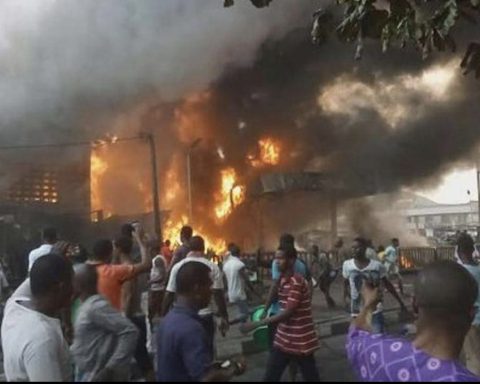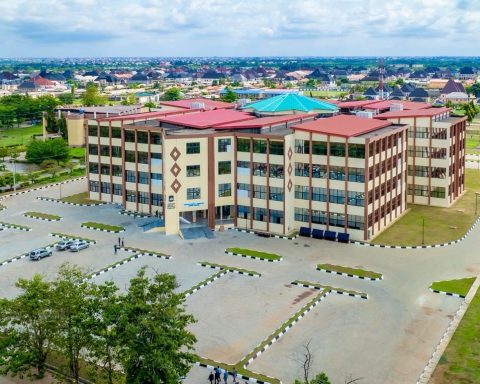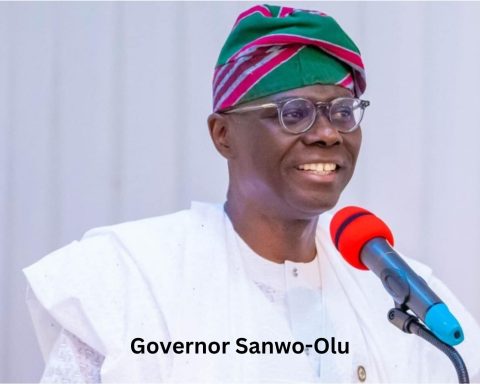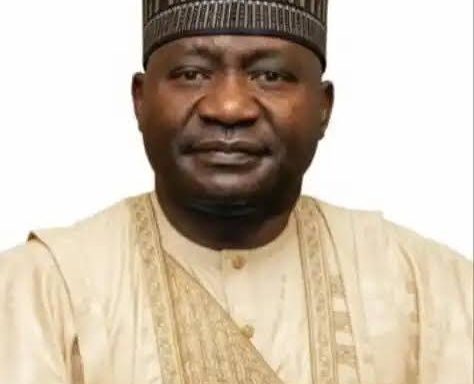The Lagos State Government has ordered an immediate suspension of every land-reclamation project across the state, citing fears that unchecked sand filling of wetlands, lagoons and floodplains is driving coastal erosion, worsening floods and threatening livelihoods in Africa’s most populous city.
The directive signed by Tokunbo Wahab, Commissioner for the Environment and Water Resources covers all projects, with or without Environmental Impact Assessment (EIA) approvals or drainage clearance, and gives developers seven days to submit documentation or face decommissioning of sites.
A City on the Edge
Lagos sits barely above sea level and already suffers crippling floods.
Join our WhatsApp ChannelStudies reviewed by the World Bank estimate annual flood losses at roughly US $4 billion in damages and productivity, while satellite analyses show large swathes of the city could be inundated under mid-range sea-level-rise scenarios if wetlands continue to shrink.
Environmental experts warn that indiscriminate reclamation constricts lagoon channels, destroys natural drainage and accelerates coastal erosion that is already eating away at shorelines from Lekki to Badagry. Fisheries groups also report declining catches as breeding grounds are buried.
READ ALSO: FG, Police Launch Task Force to Recover Encroached Federal Lands, Roll Out Housing for Officers
Ebonyi Bans House, Land Agents from 2026
The state move aligns with a federal moratorium issued in July suspending land allocations and shoreline reclamation along the Lagos lagoon. Federal planners said the action was necessary to harmonise development with national coastal-zone management.
Wahab said the state “cannot afford to allow this indiscriminate reclamation of the lagoons, wetlands and floodplains to continue unabated,” warning that failure to comply will trigger heavy machinery to excavate and remove fill, reopen blocked water channels and prosecute violators.
While reclamation creates space for luxury estates and infrastructure in land-scarce Lagos, it also raises environmental and social risks:
- Higher flood vulnerability for low-income communities
- Disruption of fishing livelihoods and loss of biodiversity
- Impaired water quality and long-term damage to lagoon ecosystems
Developers with existing approvals must now submit to fresh documentation and monitoring. New or ongoing projects will be forced through the full EIA process before any resumption.
Urban planners say the sweeping suspension is the clearest signal yet that Lagos home to more than 20 million people intends to prioritise climate resilience over speculative waterfront expansion.
Whether enforcement can keep pace with powerful real-estate interests will determine if the policy shift slows the encroachment before the next rainy season.
As the commissioner declared in the public notice: “Enough is enough.”
Amanze Chinonye is a Staff Correspondent at Prime Business Africa, a rising star in the literary world, weaving captivating stories that transport readers to the vibrant landscapes of Nigeria and the rest of Africa. With a unique voice that blends with the newspaper's tradition and style, Chinonye's writing is a masterful exploration of the human condition, delving into themes of identity, culture, and social justice. Through her words, Chinonye paints vivid portraits of everyday African life, from the bustling markets of Nigeria's Lagos to the quiet villages of South Africa's countryside . With a keen eye for detail and a deep understanding of the complexities of Nigerian society, Chinonye's writing is both a testament to the country's rich cultural heritage and a powerful call to action for a brighter future. As a writer, Chinonye is a true storyteller, using her dexterity to educate, inspire, and uplift readers around the world.
















